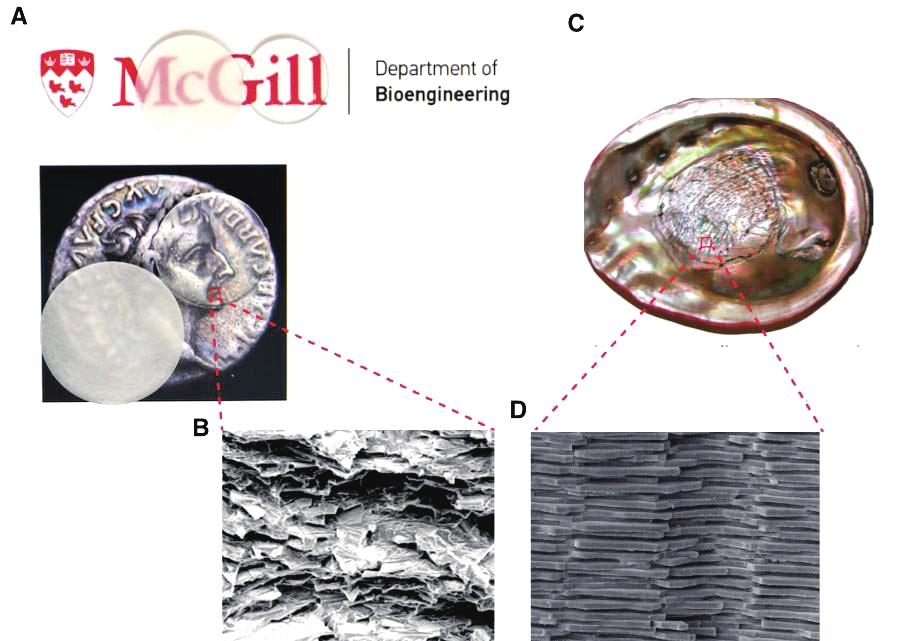
Scientists at McGill University in Canada, inspired by the shells of mollusks, have developed more robust glass. When hit, this glass will not break, but is as tough as plastic, and may have a wide range of application prospects in the future, such as improving mobile phone screens.
Tempering, laminating and other technologies can strengthen glass, but it is expensive and no longer works once the surface is damaged. The researchers say that making a good trade-off between high strength, toughness and transparency is key to making new materials.
Alan Orlich, an associate professor in the Department of Bioengineering at McGill University, drew inspiration from nature to create a new glass and acrylic composite material similar to the nacre in pearl oysters. The new material is not only 3 times stronger than ordinary glass, but also more than 5 times more resistant to cracking.
"Pearl oysters have both the rigidity of hard materials and the durability of soft materials, both." Orlich explains, "The new material consists of hard blocks like chalk covered with soft proteins with high elasticity. This structure produces extraordinary strength, making it 3,000 times tougher than the material that makes it up. ”
The researchers copied the nacre of the pearl oyster with layers of glass flakes and acrylic, creating a very strong but opaque material that was easy and inexpensive. They then further made the composite optically transparent.
Ali Armini, a postdoctoral researcher at McGill University and lead author of the research paper, said: "By adjusting the refractive index of acrylic, we make it blend seamlessly with glass to form a truly transparent composite material. ”
Next, they plan to combine smart technology to improve the glass so that it can change color, mechanical properties and conductivity.
It is speculated that flexible glass was a lost invention during the reign of the Roman Emperor Tiberius Caesar. According to the records of Roman writers, an inventor presented a drinking bowl made of this material to the emperor, and when he tried to break the bowl to test its hardness, it simply collapsed without breaking. After the inventor swore that he was the only one who knew how to produce the material, Tiberius executed the man because he feared that this glass, which might be more valuable, would devalue gold and silver.
"When I think of Tiberius' story, I am glad that our material innovations have brought 'new life' rather than 'disillusionment',' Aurich said. (CCTV)